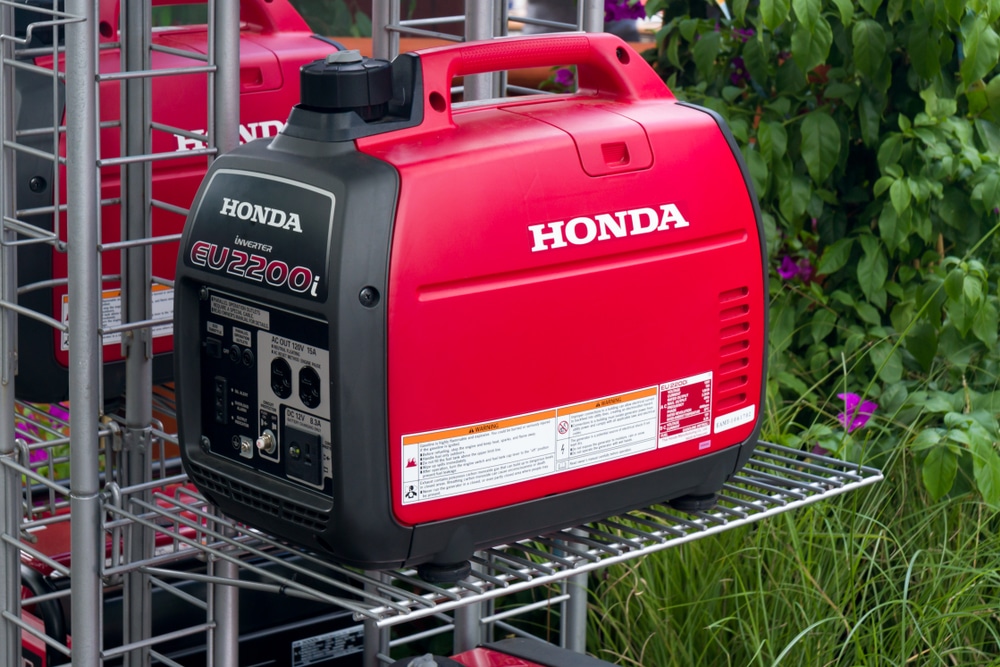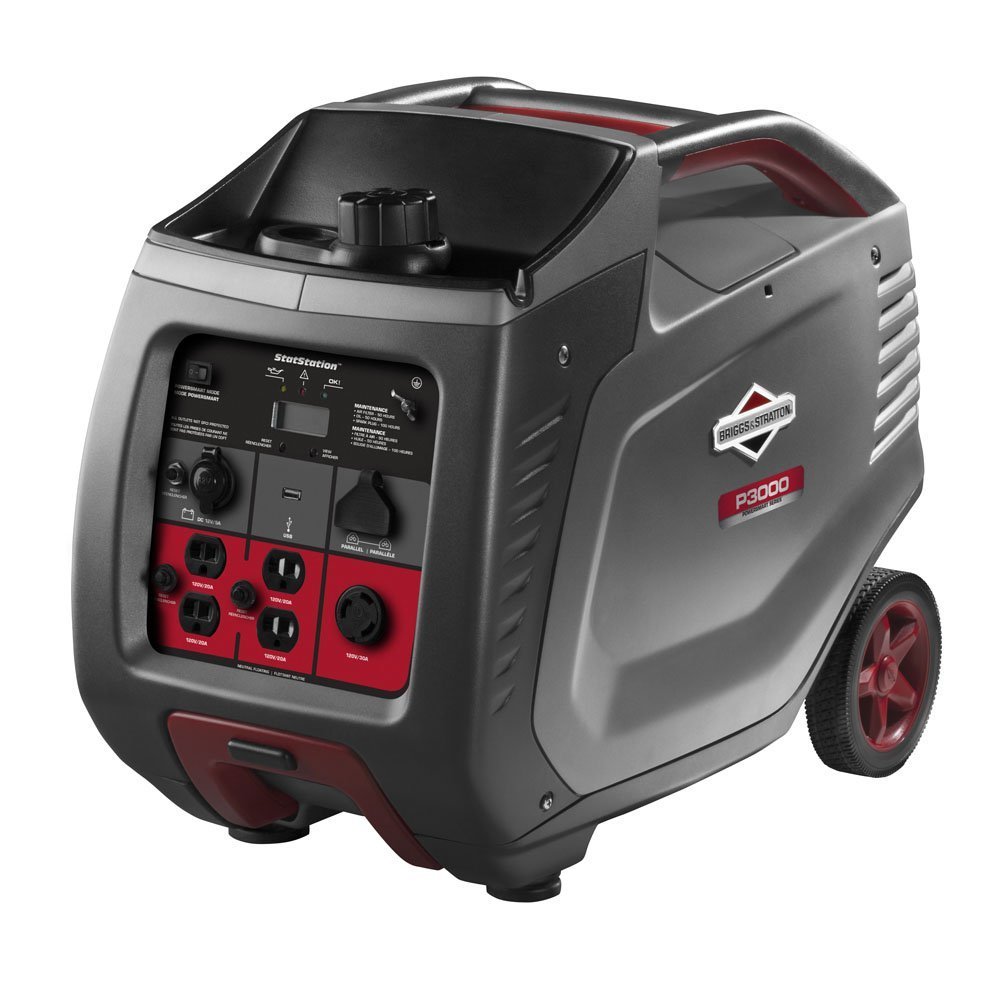You might have heard your neighbours or camping mates talking about how a portable inverter generator is better than a conventional one. But, are you confused about what an inverter portable generator is? Simply put, an inverter generator converts electricity to provide safer and cleaner power for fragile and delicate devices and appliances.
Moreover, you'll find the inverter generator to be more energy-efficient, quiet, and compact. Owing to an assortment of lucrative features, the inverter generators typically have a higher price tag.
So, are you wondering whether these portable generators are worth the hype? To help you make the best decision, this article will break down every detail of inverter generators. Without further ado, let's get started!

What Is a Portable Inverter Generator?
Inverter generators, such as the Genpower generator range, produce electricity in a pure and stable sine wave, unlike traditional generators. In simpler words, it delivers continuous smooth waves of clean power.
On the other hand, conventional generators offer choppier square waves.
When we talk about inverter generators, we refer to mobile / portable generators that run on fossil fuels. Gasoline, propane, and diesel are common fossil fuel choices for inverter generators.
You should also know that some of the inverter generators are hybrid. Some of the critical characteristics of inverter generators are their engines' speed and excellent electrical power output.
As compared to conventional generators, inverter generators do not display power fluctuations. Additionally, there is a minimal harmonic distortion that allows them to deliver cleaner power.
The cleaner power source is suitable for sensitive electrical devices such as mobile phones, laptops, cameras, and many more. Besides, most inverter generators are highly portable. The portable generator has handles and wheels.
Check out the range of Engel inverter generators, and Kings brand generators.
How Do Inverter Generators Work?
Before explaining how a portable generator works, note that its mechanics are slightly different and more complicated than a conventional generator. Inverter generators deliver power in three stages – stable AC, DC (direct current), and high-frequency AC.
Even though the inverter generators deliver a lower power output, you'll find it hard to turn down the clean power benefits. The inverter generator automatically adjusts depending on the load. Such a mechanism makes inverter generators suitable for a reliable power source. See our review of the Gentrax generator range.
The best part about owning an inverter generator is its parallel capability. It means you can double the power output by connecting two generators.
Like conventional portable generators, inverter types also offer an output of 120 volts at 60 Hertz. But, owing to the additional steps to produce electricity, the inverter generators can offer a more stable AC current. Lastly, the control on the electrical output also provides greater fuel efficiency.
Advantages of Inverter Generator
You'll notice that inverter generators offer more perks than a standard generator. They bring a range of excellent benefits to the table. Here are some advantages of inverter generators:
- Lower fuel consumption
- Cleaner power
- A highly portable and reliable source of backup power
- Low levels of emissions and noise
- Parallel capability
- East to maintain
Disadvantages of Inverter Generators
We won't lie; inverter generators also come with drawbacks. However, if you compare the advantages, these drawbacks are more or less insignificant. Take a look at the disadvantages listed below:
- High upfront cost
- The lower electrical output than a traditional generator
Uses of a Portable Inverter Generator
Do you know why inverter generators are so popular? Well, for starters, they are versatile and offer a range of uses. It is an excellent choice for outdoor locations or situations where power demand is relatively low.
You'll also find an excellent application of portable inverter generators where portability and quiet operation is critical.
Most people consider a portable inverter generator to power their sensitive devices safely. Additionally, outdoor locations have one of the most extensive demands for this type of generator.
What's more, if you have a mobile food business, you'll prefer the company of a portable inverter generator. Let's discuss the uses of a portable inverter generator in depth.
Around the House Uses
You'll find immense utility with a portable inverter generator at your home during a sudden power outage. If you live in an area with frequent power outages, getting an inverter generator would be a good investment.
Make sure to consider all the home appliances and gadgets that you want to power during a blackout. It would be best if you bought an inverter generator that will sufficiently power all your essential electrical devices during a blackout.
Fishing and Camping Trips
Most people prefer taking an inverter generator on their outdoor trips. These inverters ensure to meet all your power requirements so that you enjoy your camping or fishing trip. You can use the inverter generator to power a range of appliances, including a camping fridge, toaster, and caravan air conditioner, and air compressor.
Moreover, the inverter generators are your best shot at clean power while being outdoors for charging your gadgets. Since the inverter generator is noiseless, it'll not disturb you during your camping trip. You'll love how the generator makes your time outdoors so effortless.
Which Inverter Generator Size is the Best for Me?
Before you finalize your inverter generator model, there are a few questions to ask yourself. One of the most important things to ponder is purpose and power needs.
As you read further, you'll understand how to determine the best size of inverter generator for your needs! We have a comprehensive article on sizing your generator.
How Many Appliances Will It Power
Will you be using the inverter generator to power your fridge, gadgets, air conditioner, and other things at the same time?
You have to add up the power requirements of each of your appliances and come at a total. Doing this will allow you to have a fair idea about the suitable inverter capacity to meet your needs.
Let's assume that you are on a camping trip. Throughout your camping trip, you want to power a coffee machine, laptop, recreation air conditioner, and camp fridge. If you are looking at a similar use, then a 2,000 to 3,000-watt inverter generator is apt for you.
As you add more appliances to your list, you'll need a generator that offers more power. Also, note that some of the heating appliances at your home have up to four times the energy requirements to start.
Before you proceed with your purchase, you should have a concrete idea about your electrical energy requirements.
Inverter Generator Vs. Conventional Generators
Unlike the other generation units, inverters produce electricity from energy-producing components. An inverter generator generates electricity by switching between two phases (DC AC to DC back to a constant AC power).
Low harmonic distortion means it's a reliable alternative source of electricity for sensitive appliances like smartphones. Generally, inverter generators make the most sense of converting heat into electricity.
Conventional generators are less powerful, but they are heavier due to larger tanks. Inverters have greater fuel efficiency allowing small fuel spools or larger fuel tanks.
We have lots more to tell you about the differences between an inverter generator and conventional generators. The upcoming sections will give you a clear distinction between the two.
Power and Fuel Efficiency
Conventional portable generators indeed have better power output. The mechanical difference in producing electricity and the size of the fuel tank allows the traditional generator to offer a higher output.
One downside of these generators is that they are not fuel-efficient. It means that you'll require more gas or fuel to power your devices and appliances.
On the flip side, inverter generators are renowned for their excellent fuel efficiency. The production mechanism of the final AC current makes them more fuel-efficient. Unlike their traditional counterparts, they automatically adjust the engine to the load.
Unfortunately, with the smaller fuel tanks and mechanisms, the power output of inverter generators is not as high as conventional generators. See our review of the Cromtech portable generator.
Portability
A conventional generator can never fare up against an inverter generator when it comes to portability. Conventional generators have bigger fuel tanks, which makes them voluminous and not so space-efficient.
Besides, the size of the conventional and inverter generators also relates to the power production capabilities. Despite its large and bulky structure, it includes wheels and handles to make it easy to manoeuvre. But, since they are almost 100 pounds or more, they are not ideal for road trips or outdoor use.
Thankfully that's not the case with inverter generators. Inverter generators feature a smaller fuel tank with an overall compact appearance. Besides, they are less bulky and easy to move. The standard weight of these generators ranges from 40-60 pounds, which is ideal for moving around.
Current Noise
If you previously owned a conventional generator, you would be familiar with its capability of waking up the whole neighborhood with its engine noise. Even with all noise-minimizing efforts, it is hard to tone down the noisy traditional generators.
On the other hand, the technology in inverter generators allows for noiseless operation. Portable inverter generators run at 3600 pm, which makes them less noisy. There's a significant difference in noise levels between both generator variants.
Manufacturers generally mention the noise levels in the product description. Inverter generators tend to produce only 54-38 dB of noise. On the flip side, the noise level of a conventional generator can touch 64 dB or more.
Emissions
You might use the generator outdoors in nature reserves or national parks. A portable inverter generator is better than conventional generators in such situations.
The inverter generators are notorious for clean electric output and lower emissions. Conventional power-fueled generators tend to offend emission levels.
Besides, most portable inverter generators are CARB or EPA -compliant, which makes them an excellent choice for low emissions. By equipping your space with a portable inverter generator, you will be making an environment-friendly choice.
Parallel Connections
There's no hiding that inverter generators cannot match the high power output of conventional generators. However, these days many manufacturers enable parallel connection features in inverter generators. Thanks to the parallel connection, you can join two separate inverter generators to double power.
It is worth mentioning that conventional generators do not have parallel connection features. But since they already have large fuel tanks and higher output, you might not need a parallel connection.
Parallel connection is a helpful feature for those with high energy requirements yet require clean and stable power.
FAQs
What Are the Cons of an Inverter Generator?
An inverter generator is better than conventional portable generators in many ways. But, inverter generators are not flawless as well. But, the pros of buying an inverter generator overpowers the cons. Here's looking at the cons of an inverter generator:
- It is typically pricier than conventional fuel-powered generators
- Inverter generators tend to have lower power output as compared to traditional generators
What Can You Power With an Inverter Generator?
Let's assume that you have a 2,000 watt to 3,000-watt inverter generator. You can power both household electrical appliances and recreational devices thanks to cleaner power.
Here are some examples of what can you power with an inverter generator:
- Household – Ceiling fan, small power tools, vacuum cleaner, toaster, coffee machine, laptop, fridge, toaster
- Recreational – Caravan air conditioner, barbeque, mobile phones, camping fridge
What Fuel Does an Inverter Generator Use?
The inverter generator uses ethanol in the form of gasoline (petrol). Alternatively, some of the inverter generators also run on propane. Some brands also offer bi-fuel inverter generators.
How Much Does an Inverter Generator Cost?
The good news is that portable inverter generators are available on various budgets. Portable generators with smaller fuel tanks will cost you less.
A small 2,000-watt inverter generator will cost about $1,100. On the other hand, inverter generators with more power of about 7,000-watt can cost as high as $6,500.
Are Conventional Generators Better Than Portable Inverter Generators?
Whether conventional portable generators are better than inverter generators depends on your power requirements and use. If you are looking for a backup power output source for sensitive electronics or are an avid camping lover, investing in an inverter generator is wise.
One of the common reasons for the popularity of inverter generators is portability. In a nutshell, if you are looking for portability, go with portable inverter generators.
On the other hand, conventional generators are excellent home backup power. The electrical output of a traditional generator is much higher.
It is an apt choice for a worksite or home. In the end, the best option boils down to where you need the generator and how much power you require.
Bottom Line
And that was all you needed to know about inverter generators. You can tell the difference between conventional fuel-powered generators and inverter generators with all the information above.
Based on your needs, you can decide whether an inverter generator would be suitable or not. Inverter generators are a fuel-efficient alternative to power up your sensitive electrical devices during a power outage.
The inverter generator's cost might seem to be a turn-off. However, you'll find that features such as portability, quiet operation, and fuel savings makeup for the upfront cost.
Besides, portability makes inverter generators an excellent choice for people who live in RVs or go camping often. Finally, when you buy an inverter generator, make sure to consider the power requirements and the brand.








